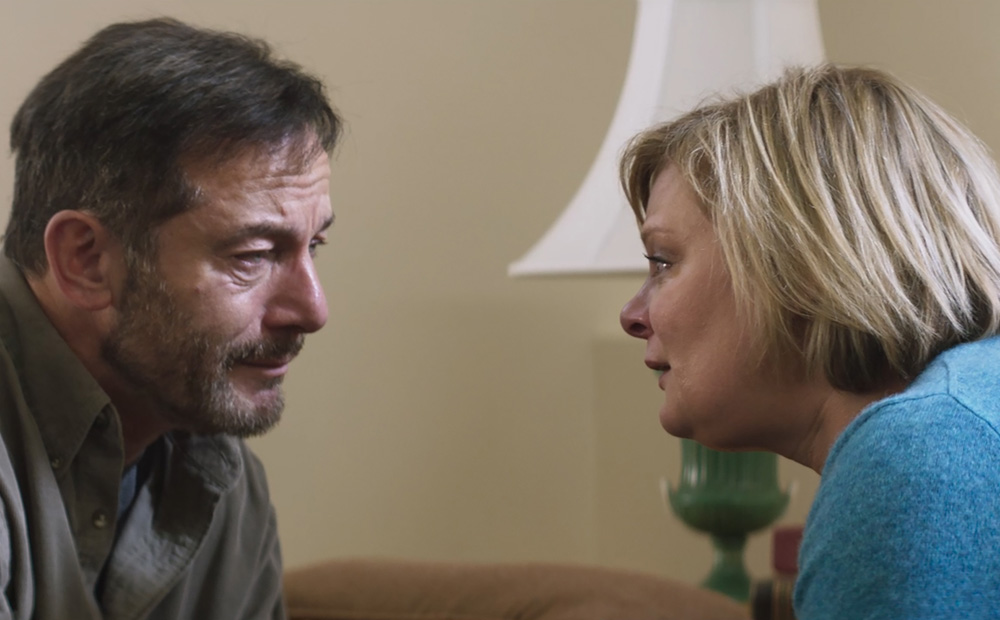Where to place the box of tissues becomes a major point of concern at the start of “Mass,” as Judy (Breeda Wool) runs around preparing the basement of a church for a meeting. As it turns out, she’s bought too many bagels and other food for what will be a small gathering of four and as Kendra (Michelle N. Carter), who’s arranged the meeting, tells her, there should be a box of Kleenex, but not placed at the middle of the table so as to block the incoming guests from seeing each other, but just enough in the back ground that they know they’re there. It’s not something Judy would’ve thought about, nor how the kids’ class projects that hang on the walls might be a distraction for the parents Jay (Jason Issacs) and Gayle (Martha Plimpton) and Richard (Reed Birney) and Linda (Ann Dowd) who are about to arrive.
It’s a testament to writer/director Fran Kranz that one starts thinking about all kinds of things in “Mass” that you usually wouldn’t before the quartet sits down for a most uncomfortable conversation arranged by others looking out for their well-being, dancing gingerly around the reason why they’re all there at first but eventually revealing a tragedy that took the lives of both of their sons as well as many others, but one was the perpetrator. From the very start, it seems like an unfair exchange for both when Gayle reluctantly pulls out pictures of Evan to share as a conversation starter, as requested by her therapist, and Linda decided not to bring hers, instead pulling out a jar that carries a happy memory of her son Hayden, an innocent enough imbalance that widens to a major chasm over the course of the drama. Though told this shouldn’t be an interrogation, the couples find themselves prying nonetheless, thrust uneasily to hash out a situation they didn’t directly have anything to do with yet have to pinpoint the reasons for what happened and guessing at possibilities that are as painful to make as they are to hear.
With cinematographer Ryan Jackson-Healy, Kranz makes smart choices throughout about where to place the camera to avoid making the scenario feel stagebound when the film rarely leaves the room once the parents agree to step inside, often directing the eye to look for how they all react to each other rather than what they have to say. Still, the filmmaker has penned a emotionally-walloping script where details from the day in question and the police investigation after that are used as loopholes for the parents of the perpetrator can be scars for the other and every implication of such an ugly act of violence can be explored with serious and compelling inquiry. The film’s intricate structure also gradually uncovers the relationship dynamics of both couples to constantly intriguing affect, showing how their personal misfortune brought them closer together or tore them apart, not necessarily in any consistent way. The film couldn’t have any more formidable an ensemble to give the instant credibility that the difficult subject matter requires than Dowd, Birney, Isaacs and particularly Plimpton, who in a rare, recent onscreen dramatic turn is completely devastating, and “Mass” can be invigorating even as it is bound to bring some tears, making its audience want to have that box of tissues ready too.
“Mass” will play once more at the Sundance Film Festival for a 48-hour window beginning on January 31st starting at 4 am MT.




